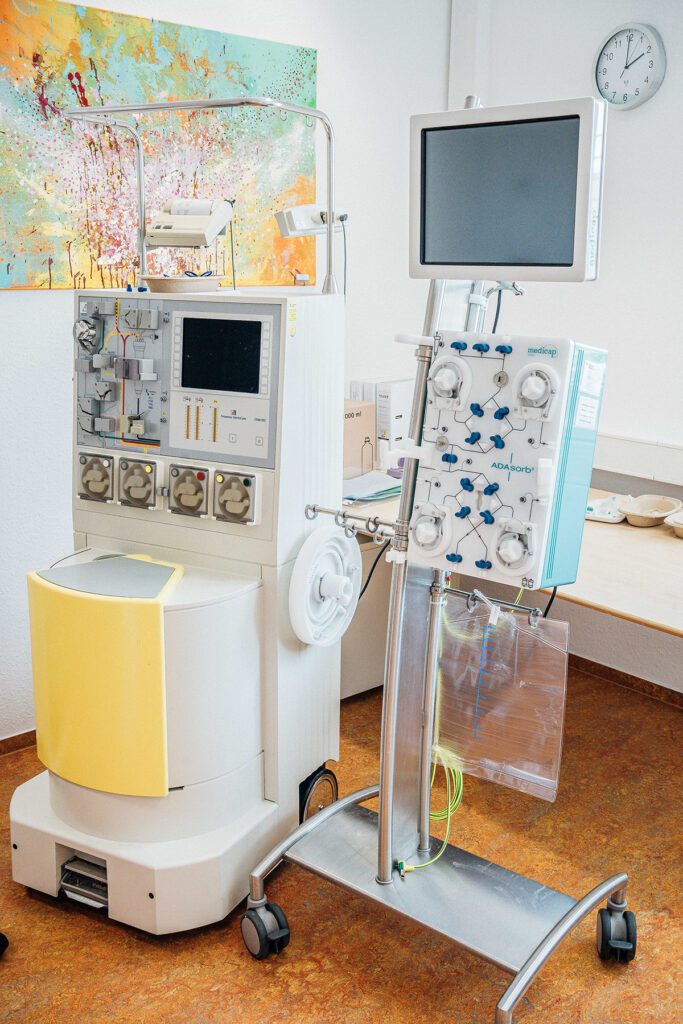Subtotal $0.00
The development of apheresis technology allowed for the selective removal of specific blood components, such as plasma, platelets, white blood cells, or red blood cells, depending on the patient’s needs. This selective removal and return of blood components opened up possibilities for treating various medical conditions.
Therapeutic apheresis is now used to manage a wide range of conditions, including autoimmune disorders, neurological diseases, hematological disorders, metabolic diseases as well as heavy metal poisoning. It can be used to remove harmful substances from the blood, such as antibodies, toxins, excess cellular components, and heavy metals.
Overall, while apheresis has been used for therapeutic purposes since the mid-20th century, its applications and technologies have continued to evolve, providing new treatment options for a variety of medical conditions.
For the past 40 years, our partner clinics have not only been utilizing the therapeutic potential of Apheresis but have also extended its application to diseases previously unexplored, yielding exceptional outcomes.


